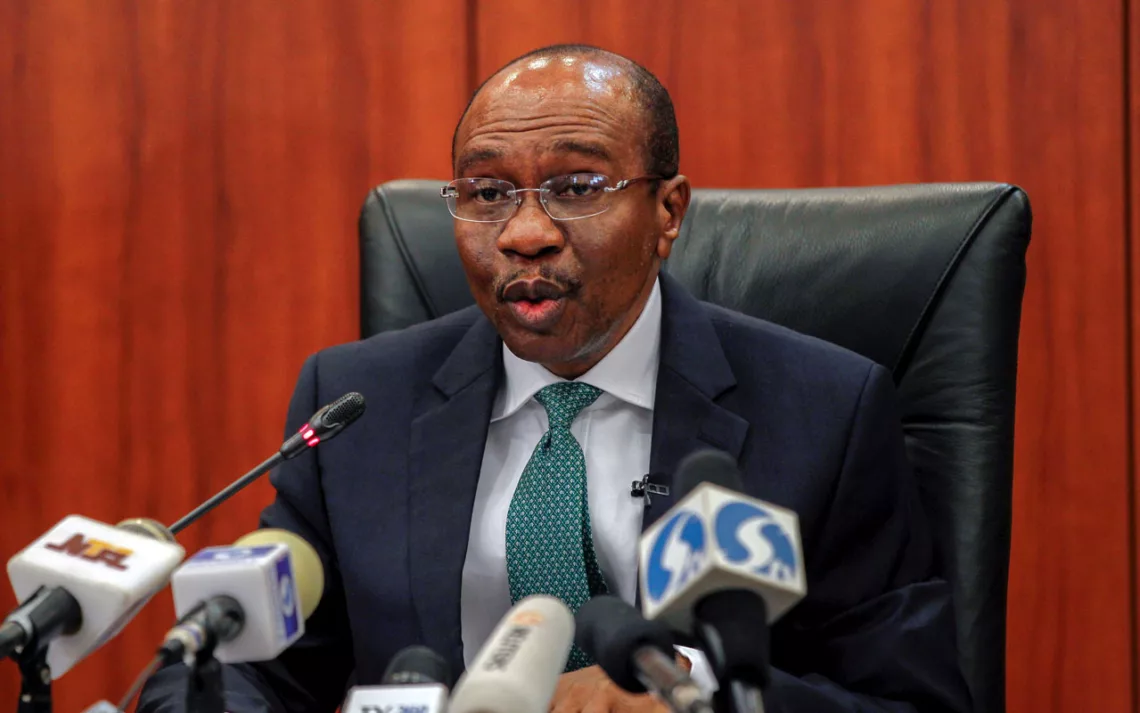Since the pronouncement by the CBN governor, Godwin Emefiele, of the federal government’s intention to redesign the highest denominations of the local currency, there have been mixed reactions as to whether the exercise will curb rising inflation.
In a palpable intent to rein in inflation, the CBN’s Monetary Policy Committee (MPC) has increased interest rates four times this year; recently by 100 basis points to 16.5 percent.
When making the pronouncement of the naira redesign, Emefiele said there was too much money in circulation, with 80 per cent outside of the banking system, which makes it difficult to implement monetary policies.
Clearly, then, there is a link between the monetary authority’s intention to rein in inflation and the naira redesign. But the big question is will the redesign of the local currency rein in inflation. Opinions among economists are mixed.
It is noteworthy, though, that since the pronouncement of the exercise, the local currency has appreciated against the dollar, from N905 to the dollar in early November to N775/$ as of Friday, December 2.
Projecting the effect the redesign will have on the value of the naira, a former deputy governor of the Central Bank of Nigeria (CBN), Prof. Kingsley Moghalu, said he fully supports the CBN’s move to mop up the naira by redesigning some denominations. He said, “If 80 per cent of banknotes in circulation are outside the banks, that is troubling.
“Indeed, it is troubling because monetary policies needed to protect the value of the naira must be effected through the banks and other financial institutions, which take orders from the central bank. However, with more than 80 per cent of the country’s currency outside of the financial system, it puts the monetary authorities in weak position to determine the value of the local currency and other policies for a healthy and predictable economy.”
During his policy pronouncement of the naira redesign, CBN governor, Godwin Emefiele indicated that certain criminal elements may be in possession of sophisticated printing machines to produce identical copies of the naira notes. That goes to imply that the criminals are infusing money into the system, outside of the authority of the CBN. Too much money may be chasing fewer goods, which is a veritable recipe for inflation.
Commenting on that, Professor of economics, Abdullahi Wahab told NATIONAL ECONOMY that there is no doubt ordinary Nigerians have stashed billions of naira in their private vaults, which they spend at will, and buy foreign currencies at will, regardless of the price of the foreign currency, which puts pressure on the naira, and engenders inflation. He said he supports the naira redesign as a mop-up strategy because the exercise will reduce the money in circulation, empower the monetary authorities, and “clip the wings of unscrupulous politicians as we inch toward an election date.”
Wahab stressed to NATIONAL ECONOMY that the move by the CBN comes at the appropriate time because, given the fact that “we are barely two months away from the 2023 elections, with politicians having billions of naira stashed in their private homes and ready to infuse into the economy to buy votes, inflation would spike steeply over the coming months.”
Alluding to politicians’ willingness to, and having the capacity to infuse billions of naira into the system, a public affairs analyst, Peter Echekoba, said the recent development of a governor in the south-south appointing 200,000 personal aids may not be far from the correcting impact of the naira mop-up strategy.
“This is the best policy of this government since they assumed power over the past seven years,” he said.
Another economist, a stock market broker, David Mba, said among other things, this may be the perfect opportunity to for the CBN to effect its cashless policy with the e-naira as its vehicle.
Alluding to the speech of Governor Emefiele on the naira redesign, Mba said the CBN governor indicated that the currency in circulation is more than twice the amount allowed in circulation by the monetary authority. He added that if the CBN can effect the cashless policy through this exercise, it will no doubt rein in inflation.
He added that if the Dangote refinery comes into operation in Q1 of 2023 as promised, the federal government will be able to save 40 per cent of its forex, and the naira will likely start having a reversed trend.
Speaking with NATIONAL ECONOMY about the dramatic turn, capital markets professor, Joseph Uwaleke, said the CBN’s policy will have an impact on the value of the local currency, but caveated that the current drama is not sustainable. He said some money may have been infused into the system.
With the upstream oil subindustry now producing 1.3 million barrels of oil per day as of Thursday, December 1, 2022, Uwaleke’s position may have credence; possibly, the federal government has started receiving more hard currency from the sale of crude oil and infusing into the market.
However, Steve Kelikume, an economist and social affairs analyst, avers that the naira redesign is having an impact on the value of the naira, and will soon begin to manifest in the rate of inflation in Nigeria.





